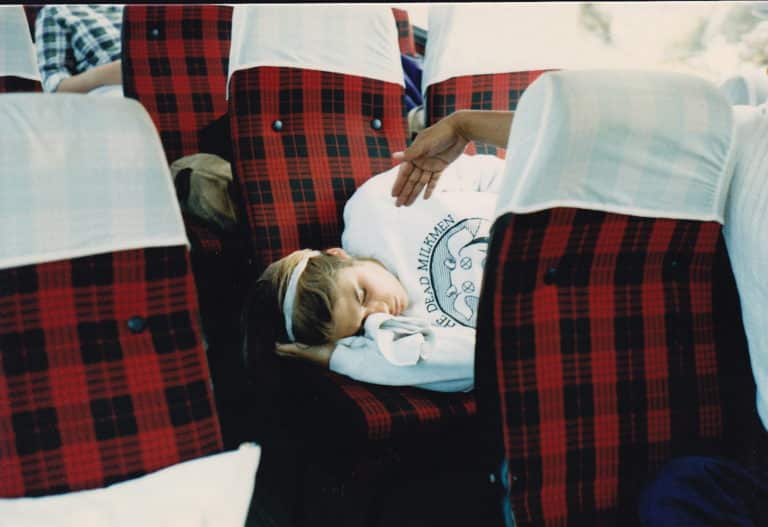We Have to Eradicate Our Own Self-Doubt
This spring, my neighbor Louise and my three-year-old daughter Maya planted a couple dozen carrots in one of the boxes in our communal garden. Louise patiently explained to her that the seeds needed a little distance from one another in order to effectively grow, that they must be watered regularly, which was perfect, as Maya loves little more than watering a garden. Louise said it would take some time for them to sprout.
Time, to a toddler, is about as useful a concept as stock options. Maya forgot about the carrots almost immediately. Then one day we were wandering through the garden looking for strawberries, munching on basil, when she gasped. The little orange head of a carrot was just peeking out of the dirt, its strong head of green hair flopping to one side. Maya grabbed the green stems and pulled with all of her might and out came a real-deal carrot. I have rarely seen her so proud.
Recently, at an odd moment, I thought of Louise and Maya’s carrots when I had the honor of interviewing choreographer Alonzo King, founder of the LINES Ballet (now celebrating its 35th anniversary), at the Aspen Institute’s Spotlight Health conference. You can watch a performance by some of his gifted dancers, followed by the full interview:
Of the many valuable things Alonzo said that evening, this struck me to the core:
“Self-doubt has to be eradicated. If you plant a seed, you don’t dig it up to see if it’s growing. You plant it. You believe in it. You nurture it. You go with it.”
How many of us spend our lives planting seeds and then worriedly start digging them up?
We lie in bed replaying a conversation from the day, wondering if we said what we meant, if we were understood, if perhaps we should revisit the topic with a different angle at a later date. Perhaps we agonize at such length over some comment we made in a past meeting, so much so that we nearly guarantee ourselves that we won’t say anything in the next one. We can’t stomach another retrospective inquisition.
We have a moment of pure creative inspiration — writing or drawing or sculpting — and it feels exhilarating in the moment. And then… we revisit it. We overwork it. The singing intent dies a slow death. Our most basic fear is intellectualized and called “revision.” This is not watering the seed; it is poisoning the dirt with too many considerations.
Or just think of all the overwrought parenting that goes on. We birth these humans who miraculously become real people within just a few years of brain-bending growth. On some level, we realize that their personalities were fully formed from the get-go. Yet, we spend countless hours digging up the proverbial seed of who they are and agonizing over what we — their parents — should be doing better to guarantee their flourishing. Turns out, eradicating our own self-doubt about our capacity to be good parents, and even more importantly, admitting we have less control than we think we do, is the healthiest thing we can probably do for our kids (or so says Alison Gopnik).
Imagine how different your life would be if, as Alonzo King recommends, you were able to eradicate self-doubt. This is not to be confused with becoming thoughtless or arrogant. He’s a huge proponent of self-reflection and humility. It’s more about trusting your own instincts — recognizing that, even in your messiness, you are perfectly made, that you have these seeds, these gifts, that must be planted and trusted.
In many ways, eradicating self-doubt is the pathway to a deeper humility. When you don’t doubt the seed you have planted, you, in a sense, give up control. You admit how little you have to do with the fruits of your own labor. It’s the water and the air and the photosynthesis and maybe, depending on your belief system, it’s an inexplicable, jaw-dropping miracle. You trust that your biggest gifts may actually conspire to exist even without your careful cultivation, that perhaps they will have an even greater chance of appearing if you don’t obsess over them.
I’m going to try to heed Alonzo’s call. I’m going to try to forget time, like Maya. I’m going to try to trust the soil, like Louise. I’m going to give up thinking that I can micromanage miracles — big or small.

